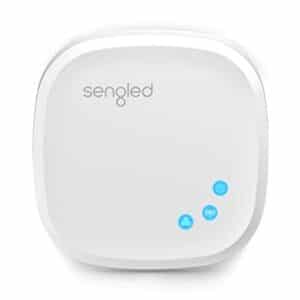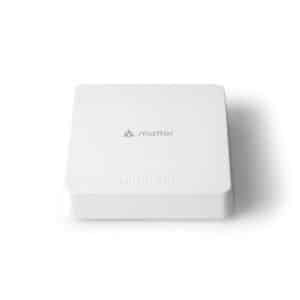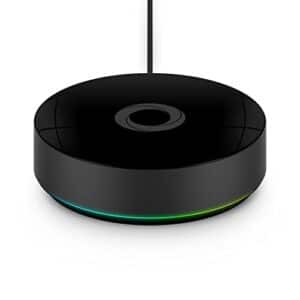What Is a Smart Home Hub?
Key Takeaways
- A smart home hub acts as the central control point for all smart devices in a home, allowing users to manage and control multiple devices through a single app or interface.
- A smart home hub enables the integration of devices from different manufacturers and platforms, creating a cohesive smart home experience.
- Many smart home hubs offer local control capabilities, providing better security and faster response times by keeping devices and data on the local network.
A smart home hub is a device that serves as the central control point for all smart devices in a home. It acts as the brain of a smart home, allowing users to manage and control multiple devices through a single app or interface. With a smart home hub, users can send commands, automate tasks, and integrate devices from different manufacturers and platforms, creating a cohesive and convenient smart home experience.
Centralized Control
One of the primary benefits of a smart home hub is centralized control. Instead of needing multiple apps to control different devices, a smart home hub allows users to send commands to all their devices from one central place. This eliminates the hassle of navigating through different apps and simplifies the management of a smart home.
Integration of Different Devices and Platforms
A smart home hub enables the integration of devices from multiple manufacturers and platforms. It acts as a bridge, allowing devices that use different protocols, such as Wi-Fi, Zigbee, Z-Wave, and Bluetooth, to work together seamlessly. This integration creates a more cohesive smart home experience, where devices can communicate and cooperate with each other.
Local Control
Many smart home hubs offer local control capabilities. This means that the devices and data stay on the local network, providing better security and faster response times. With local control, users can have peace of mind knowing that their smart home devices and personal data are not exposed to the internet.
Support for Low-Powered Protocols
Smart home hubs can incorporate devices that use low-powered protocols like Zigbee, Z-Wave, and Thread. These protocols are commonly used in smart home devices and allow for a wider range of compatible devices. By supporting these protocols, a smart home hub ensures that users have more options when choosing devices to add to their smart home ecosystem.
Stable Internet Connection
Some smart home hubs provide a more stable internet connection for the smart home. They can be connected to the internet router via ethernet, which ensures a reliable and consistent connection. This stability is essential for smart home devices that rely on a strong internet connection for proper functioning.
Machine Learning Capabilities
Certain smart home hubs incorporate machine learning capabilities to make the smart home smarter and more efficient. These hubs can analyze user behavior and patterns to automate tasks, optimize energy usage, and provide personalized experiences. Machine learning enhances the overall intelligence and functionality of a smart home.
In conclusion, a smart home hub is a central control device that brings together and manages multiple smart devices in a home. It offers centralized control, integration of different devices and platforms, local control, support for low-powered protocols, stable internet connection, and machine learning capabilities. With a smart home hub, users can enjoy the convenience, security, and automation that a smart home has to offer.
Related Websites:
FAQs:
Q: What is a smart home hub?
A smart home hub is a central device that connects and controls various smart devices within a home. It acts as a bridge, allowing different devices to communicate and work together seamlessly. With features like automation, remote access, and compatibility with different protocols, a smart home hub enhances the overall smart home experience.
Q: What are the key features of a smart home hub?
Smart home hubs commonly offer voice control, compatibility with different protocols, and integration with third-party devices. They use wireless technologies like Wi-Fi, Bluetooth, or Zigbee to establish connections with other smart devices. Compatibility and the ability to support a wide range of devices and brands are also important features to consider.
Q: What are the benefits of using a smart home hub?
Using a smart home hub allows for centralized control of multiple devices from a single interface, whether it’s a mobile app or voice assistant. It offers convenience by allowing users to adjust lighting, temperature, security systems, and more with just a few taps or voice commands. Smart home hubs also enable automation and customization, allowing users to create custom routines, schedule events, and enhance comfort and efficiency. Additionally, they enhance home security by integrating with security devices and providing real-time alerts and remote monitoring.
Q: What should I consider when choosing a smart home hub?
When choosing a smart home hub, consider the compatibility and integration with your existing smart devices, ensuring it supports the necessary protocols. Check if the hub can integrate with popular voice assistants like Amazon Alexa or Google Assistant. Scalability and future expansion are crucial, so select a hub that can accommodate your current needs and allow for new additions. User-friendliness and support are also important, so look for a hub with an intuitive user interface, easy setup process, and available customer support and online resources.
Q: How can a smart home hub transform my home automation experience?
A smart home hub has the potential to transform and streamline your home automation experience. It provides centralized control, automation, and customization, allowing you to control multiple devices easily and create personalized routines and scenes. With enhanced security features and integration with security devices, a smart home hub offers peace of mind. By considering your individual needs and preferences, exploring different options, and choosing the right smart home hub, you can enjoy the benefits of a more convenient, efficient, and secure smart home.






